Backyard cafes in JB give their owners hope to extend land lease, preserve kampung heritage
Sign up now: Get insights on the biggest stories in Malaysia
Follow topic:
- Kampung Melayu Majidee residents fear urban redevelopment as 99-year leases expire in 2053, urging the state to designate the land as Malay Reserve Land.
- Backyard cafes are revitalising the village, with owners hoping economic activity will strengthen their fight to keep their land.
- The Johor government assures residents that any redevelopment will preserve heritage, but residents insist on freehold titles and haven't ruled out legal action.
AI generated
JOHOR BAHRU – Newlyweds Izwan Zaini and Azrin Zainal took a leap of faith in 2024 when they decided to set up a cafe selling their distinctive laksa, not in urban Johor Bahru, but in a quiet community about 10 minutes’ drive from downtown.
The pair moved into a 70-year-old landed family home in a sleepy lane in Kampung Melayu Majidee, the village where Mr Izwan was born and raised.
He hopes that if his cafe thrives, it may help his case to extend the lease on the land and preserve the area from any future redevelopment.
“Kampung Melayu is not just a food haven, but also a source of pride and heritage for us here in JB. To preserve it has been our main goal,” Mr Izwan, 33, told The Straits Times.
The couple said their cafe – Ruma Tengah – has been doing well since opening in August 2024. Their signature dish is laksa Johor, which uses spaghetti – instead of rice noodles – topped with a rich, creamy herring broth, fresh salad and sambal belacan. It is popular with local councillors and even the Johor Palace.
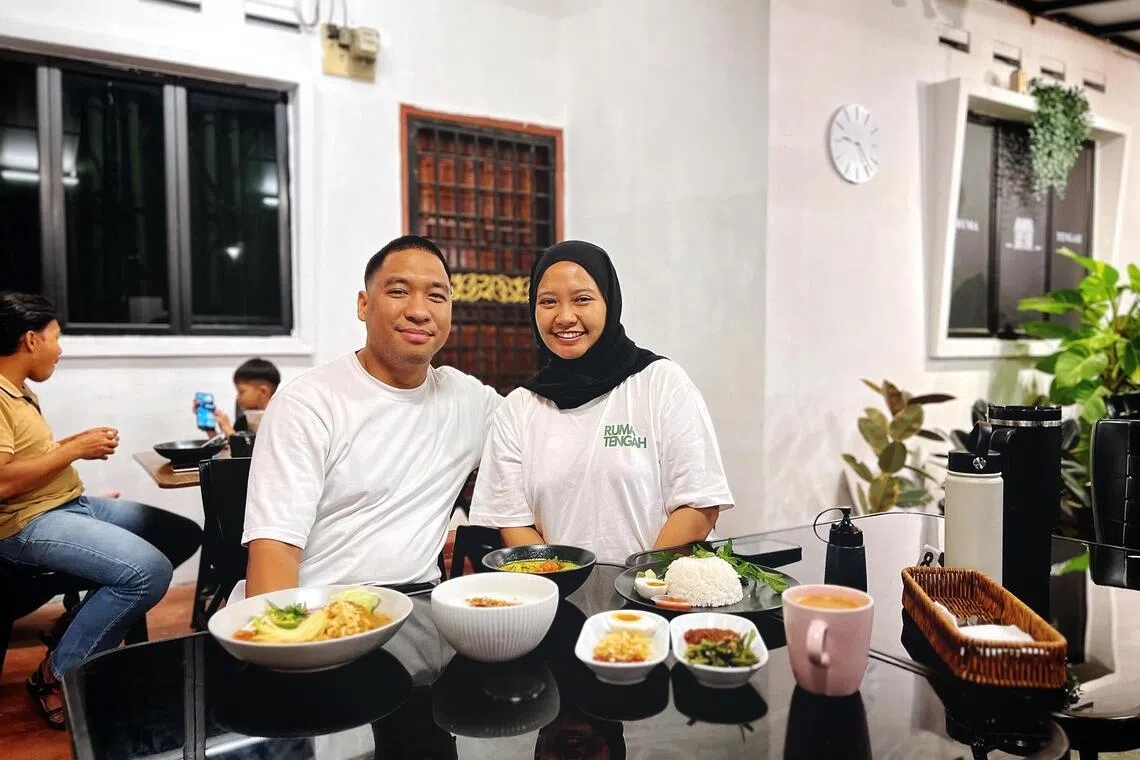
Mr Izwan Zaini, 33, and Ms Azrin Zainal, 30, co-own cafe Ruma Tengah in Kampung Melayu Majidee.
ST PHOTO: HARITH MUSTAFFA
Ruma Tengah is one of more than a dozen “backyard cafes” that have sprung up in the area over the last few years. Operating from residential properties, they are turning parts of a once-quiet Malay village into a bustling night spot for local food fare.
Most belong to a loose network of locals who expect that increased economic activity will strengthen their fight to extend their leases before these expire in 2053, allowing them to retain the land beyond that date.
Despite its proximity to downtown, the village is mostly made up of decades-old homes – some dilapidated, some abandoned – making it prime real estate for the state government. A redevelopment would necessitate the relocation of original settlers.
From royal land to Malay village
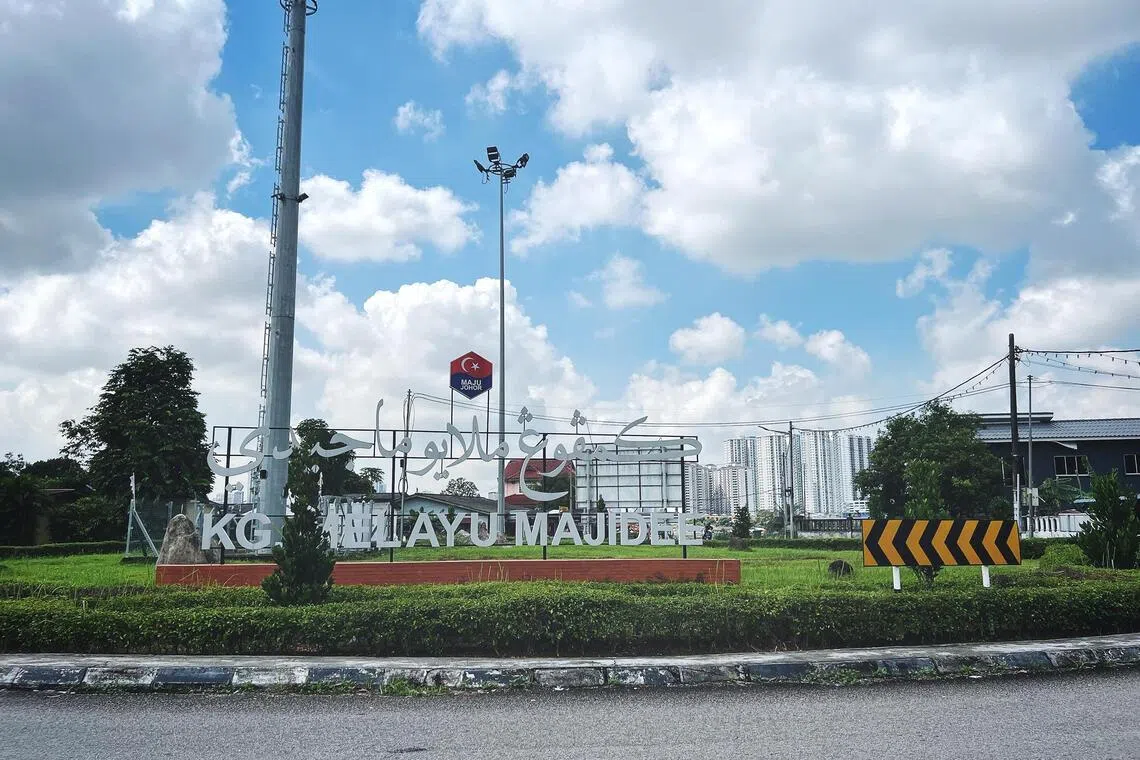
The land that Kampung Melayu Majidee sits on has been owned by the Johor Palace since the late 19th century.
ST PHOTO: HARITH MUSTAFFA
According to state historical sources, Kampung Melayu Majidee was named after Ungku Abdul Majid, the son of the local leader, Temenggong Daeng Ibrahim. The latter ruled Johor from 1855 to 1862, after moving his seat of power from present-day Telok Blangah in Singapore.
Formerly a rubber plantation, the land was granted to Abdul Majid when his eldest brother, Abu Bakar, became the first sultan of modern Johor in 1886. It has remained under royal ownership since.
The present-day village was established in the 1950s, with a 99-year lease from the Johor Palace to the original settlers. Mr Azhar Abdul Jalil, the deputy chairman of village association Perkam, told ST most of them were civil servants, such as military or police officers.
With less than three decades until the leases are set to expire, some 800 residents had in April signed a petition urging the state to convert the land to freehold. They argued that their forefathers’ land should be designated Malay Reserve Land, which may be owned only by Malays.
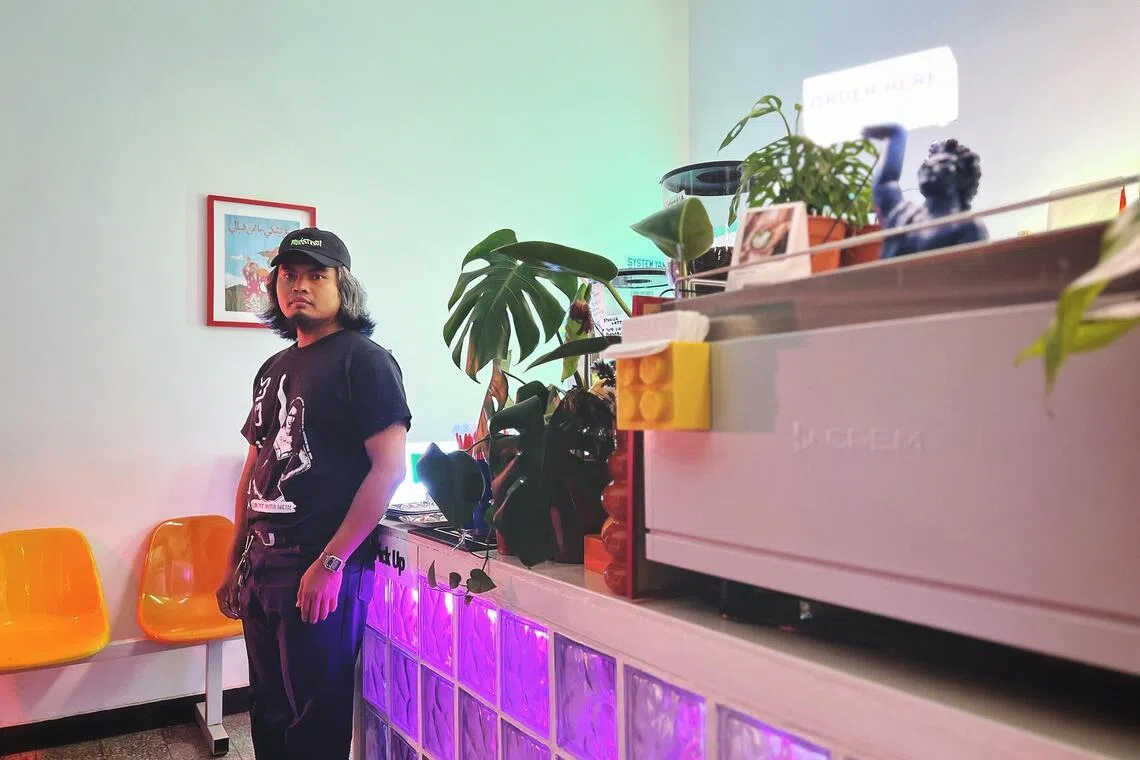
Mr Mohd Nurazri Aminudin, co-owner of cafe Kalcer Hub in Jalan Tengah, Kampung Melayu Majidee.
ST PHOTO: HARITH MUSTAFFA
Residents polled by ST said despite there being 28 years left until the leasehold ends, they fear that the area, one of Johor Bahru’s last remaining Malay villages, may soon be lost to urban redevelopment.
The village sits in what the locals call “the golden circle” – it is surrounded by shopping malls, luxury condominiums and key transport links, just minutes from Singapore.
Johor Bahru is set to grow with the Rapid Transit System Link to Singapore special economic and financial zones
Mr Azhar said residents do not want the land to be turned into condominiums, shopping malls or hotels, noting how “there is plenty of that in JB”.
“Instead, we’d like this place to support our local community, either as a place to do business or provide affordable homes for young families starting out,” he said, welcoming cafe owners who are revitalising the area.
Responding to these fears, Johor Menteri Besar Onn Hafiz Ghazi told the state assembly in May that his administration will not be “unjust” to the residents.
He assured residents that any modern redevelopment will preserve the village’s heritage. So far, seven applications for lease extensions have been approved by his government.
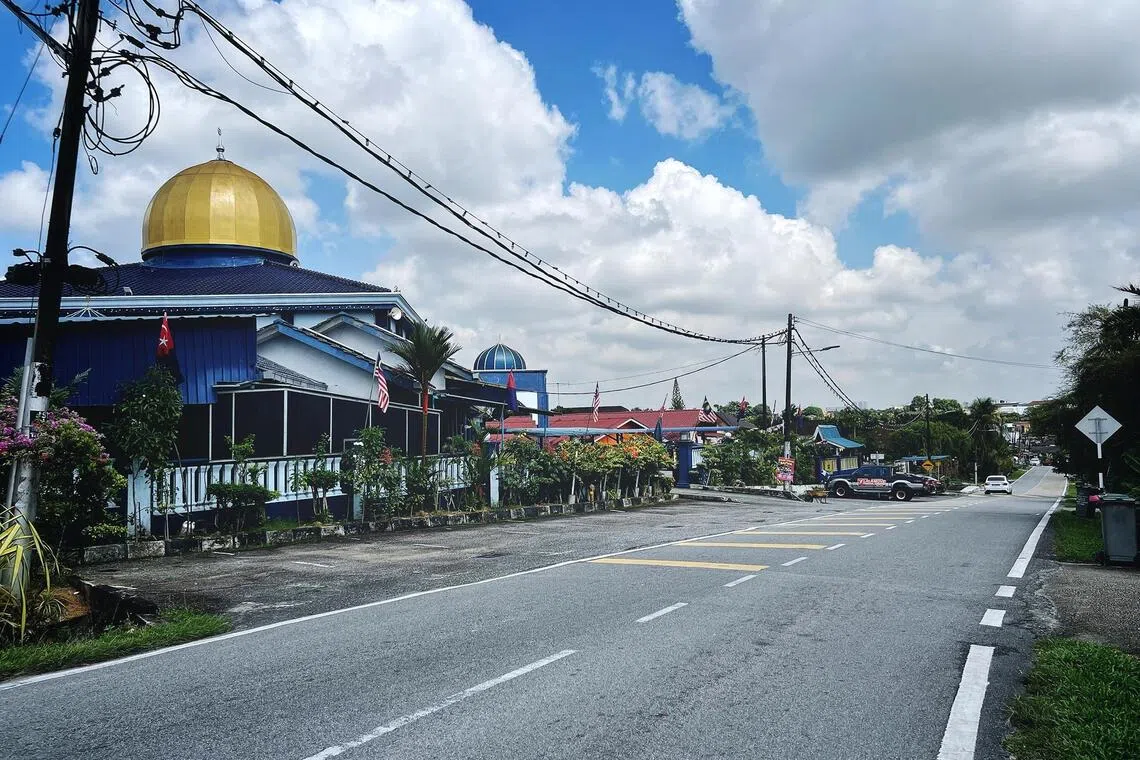
Masjid Bulatan, a mosque in Jalan Satu, Kampung Melayu Majidee.
ST PHOTO: HARITH MUSTAFFA
ST’s checks of the Johor Bahru Special Area Plan 2030 showed that this redevelopment includes road widening, commuter-friendly facilities, a central garden with cycling lanes, and a mixed sports-retail hub.
The village will also have its own tram-bus stop
Mr Aziff Azuddin, research director at Malaysian think-tank Iman Research, explained that urban Malay villages in the country were formed when rural communities migrated to cities in the past, creating cultural enclaves rich in identity and history.
“So the pushback is understandable from a community that feels like rapid urban development will come at the cost of wiping out the entire history and heritage of a community,” he said.
Legal battle over land conversion
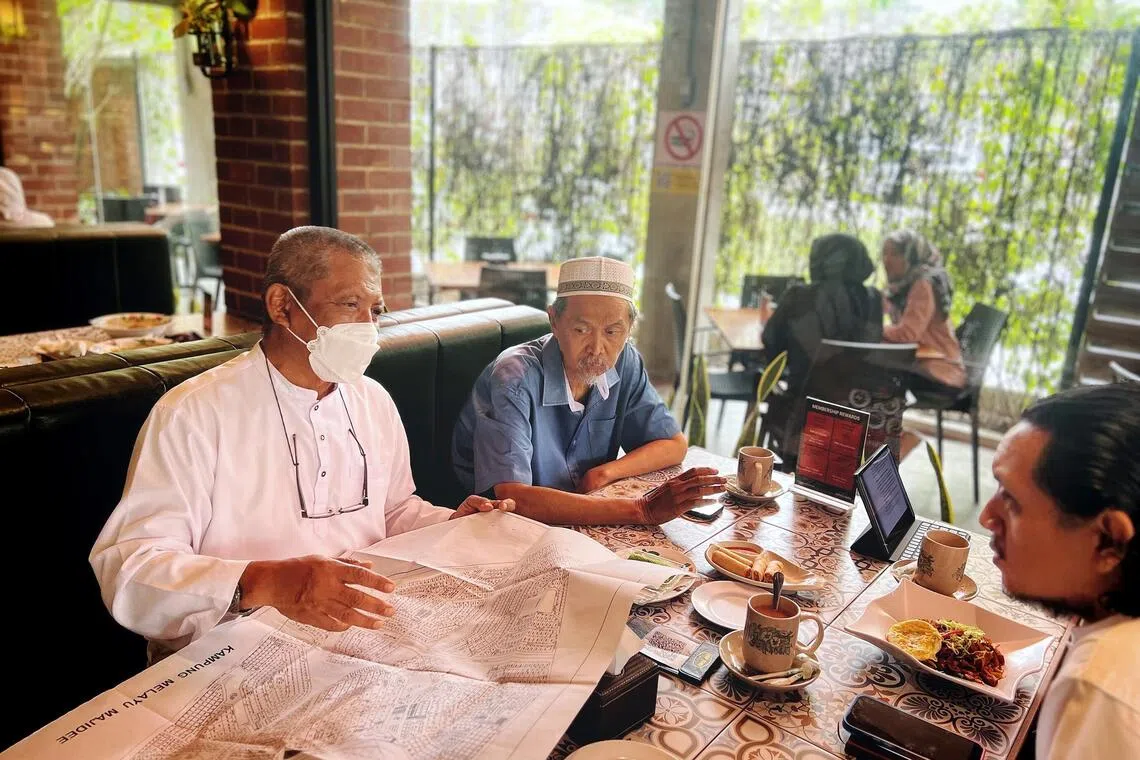
Perkam chairman Abdul Rahim Md Shariff (centre) and secretary Hussin Saemon (left) speaking with lawyer Alias Rasman.
ST PHOTO: HARITH MUSTAFFA
Lawyer Alias Rasman, who is Perkam’s legal adviser, said that there are two different issues at play: The first involves the status of Malay Reserve Land under the Federal Constitution and Johor Malay Reservation Enactment 1936; and the second the National Land Code, which regulates land titles including freehold and leasehold ownership.
Article 89 of the Federal Constitution states that Malay Reserve Land status requires strict dual approval from both state and federal levels before it can be changed, and if any such land is removed, an equivalent replacement must immediately be declared.
Under the Johor Malay Reservation Enactment, only the state Land Office can amend the boundaries of Malay Reserve Land, with the approval of the sultan.
Meanwhile, under the National Land Code, residents must apply to the Land Office to either convert their leasehold land to freehold, or to request an extension on the lease.
In August, Perkam said it may consider legal action to force the conversion of the land leases to freehold.
“The residents, as legitimate holders of the land, are entitled to apply lawfully for security of tenure and long-term ownership rights,” said Mr Alias.
Are backyard cafes enough?
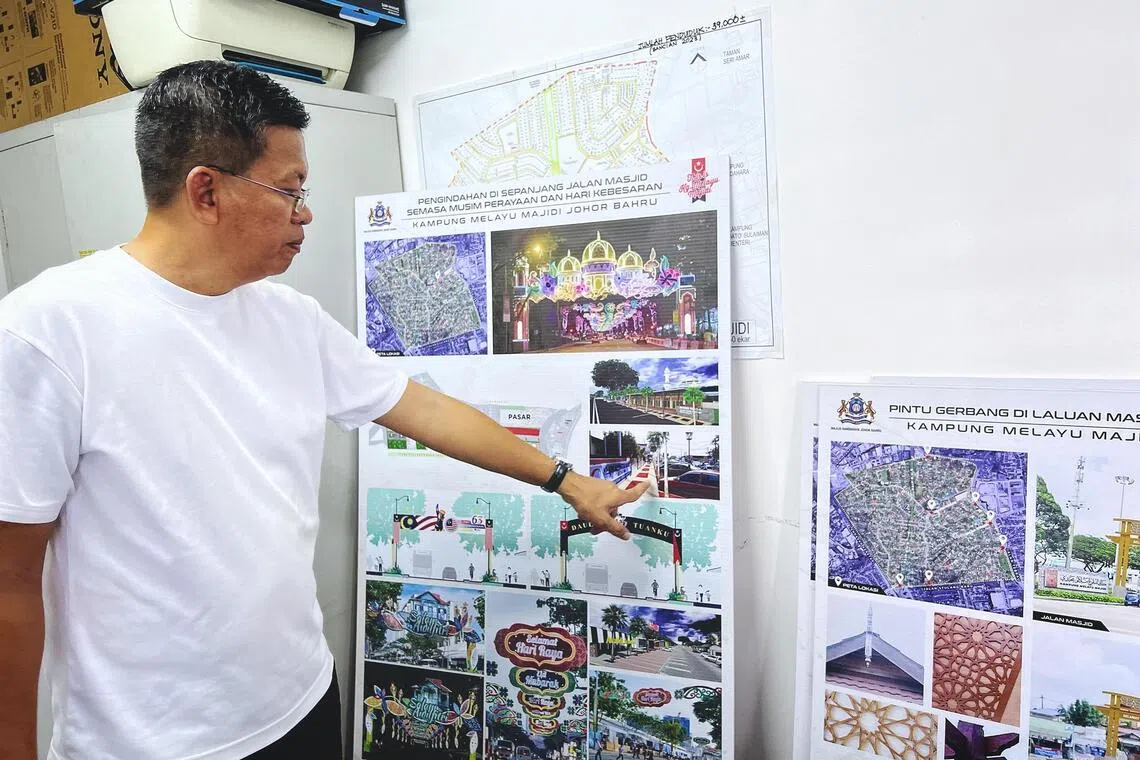
Grassroots leader Mohd Ali Mohd Salleh showing proposed upgrades for the village.
ST PHOTO: HARITH MUSTAFFA
Some residents whom ST spoke to hope to keep their land indefinitely. However, others are open to redevelopment if they are fairly compensated.
Despite this, many younger residents have moved away, making upkeep of properties in the village difficult. Grassroots leader Mohd Ali Mohd Salleh said financing homes also poses a challenge.
“Banks are unlikely to grant loans for property with such short lease periods,” said Mr Ali, who also chairs a welfare group in the village.
Lease renewal documents seen by ST showed that it costs about RM52,000 (S$16,000) to extend a 13,000 sq ft lease by 99 years. A similar 6,600 sq ft lot was recently renewed for nearly RM17,000.
As a result, many of the houses in the village remain dilapidated, despite the revival by the new backyard cafes.
Former resident Ishak Jailan, who has run his cafe Smokey Kuew Teow at his late mother’s home since 2017, said he is proud to see young people turning old homes into business spots.
“If land is left vacant, it’s left to rot. Having newcomers do business gives it purpose and offers income to the landowners too,” the 65-year-old said.
Meanwhile, Mr Md Azhar Md Aris, 39, who grew up poor in illegal squatters’ settlements in the village, hopes that rising business activity will help preserve Kampung Melayu Majidee.
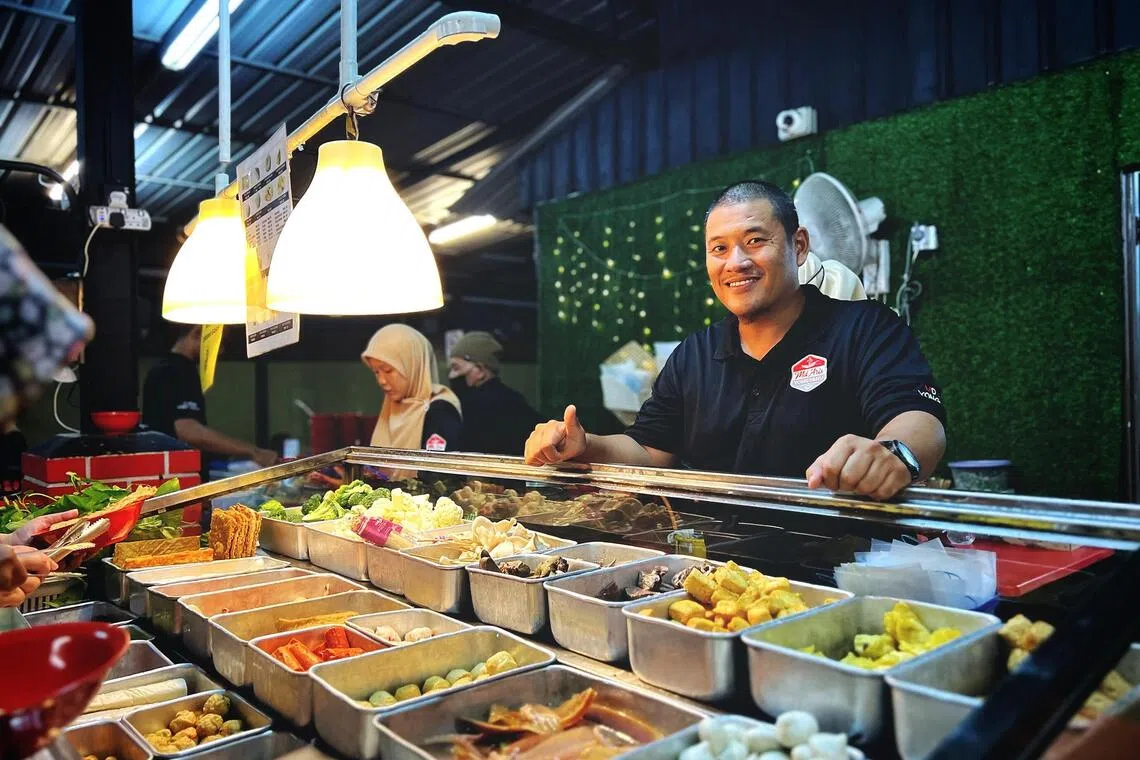
Mr Md Azhar Md Aris, 39, grew up poor in illegal squatters’ settlements in Kampung Melayu Majidee but now manages his late father’s yong tau foo business.
ST PHOTO: HARITH MUSTAFFA
He now runs his late father’s business Md Aris Yong Tahu, selling yong tau foo with his mother and two sisters from a landed house bought in 2014, complete with a dining hall and carpark for patrons.
Newcomer Mohd Nurazri Aminudin, 34, from Kota Tinggi, said he is moved by the residents’ fight for their lands. He runs Kalcer Hub, a cafe and event space popular with millennials and Gen Z patrons. Around 30 per cent of its customers are from Singapore.
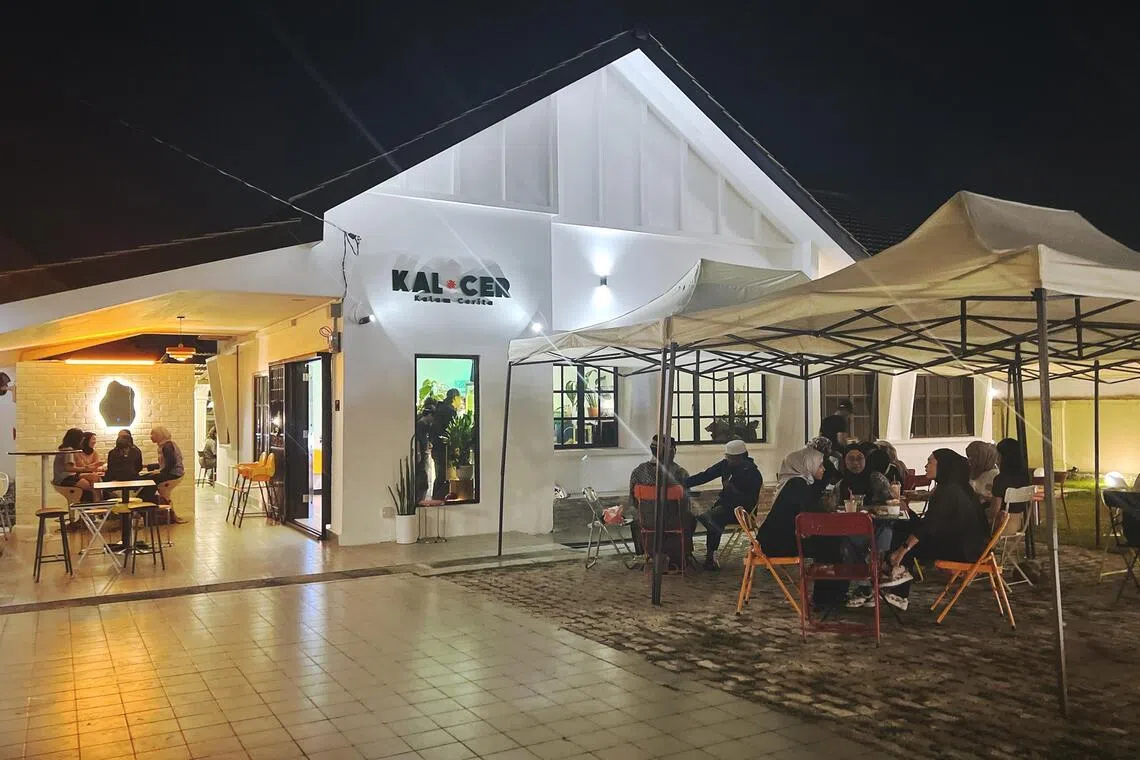
Kalcer Hub is popular among the young. Around 30 per cent of its customers are from Singapore.
ST PHOTO: HARITH MUSTAFFA
He recalled a neighbour who, inspired by Kalcer Hub, also upgraded his run-down restaurant.
“I met the owner – an otai – while he was painting his shop,” he said, using the Malay slang term for “old timer”. Mr Nurazri said his neighbour had thanked him for restoring life to the place, pushing him to also do the same.
“I’m not from here. I don’t share the same sentiments as the locals. But I feel like I’m contributing something more to Kampung Melayu.”
Sign up for our weekly
Asian Insider Malaysia Edition
newsletter to make sense of the big stories in Malaysia.


